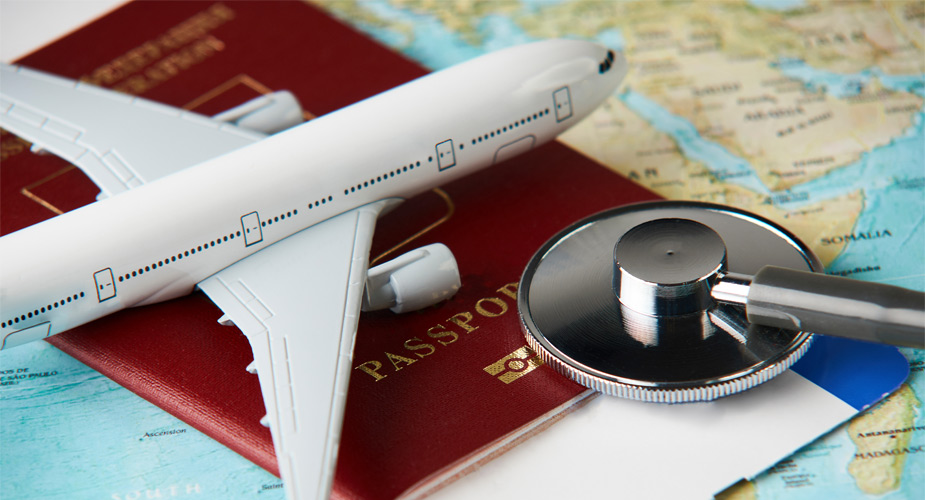Travelling Safely and Well Insured

Reduce Your Risks This Summer– Plan NOW
May 9, 2018
Safeguard Special Occasions – is your gift of jewelry covered by your policy ?
July 4, 2018 Summer is nearly here, and with it comes the excitement of vacation travel. Whether your plans are taking you to exotic locations abroad or just up the road, it makes good sense to protect yourself, your loved ones, and your property from unforeseen and costly complications that can ruin your vacation and drain your bank account. So before heading off to that crystal lagoon or serene mountain hideaway, it pays to take some time to explore the world of travel insurance.
Summer is nearly here, and with it comes the excitement of vacation travel. Whether your plans are taking you to exotic locations abroad or just up the road, it makes good sense to protect yourself, your loved ones, and your property from unforeseen and costly complications that can ruin your vacation and drain your bank account. So before heading off to that crystal lagoon or serene mountain hideaway, it pays to take some time to explore the world of travel insurance.
Here we’ll take a look at some basic types of insurance for travellers and offer what we hope are some useful tips on selecting the best travel insurance coverage for you.
Trip Cancellation or Interruption Insurance
Nearly every vacation requires planning. Whether you’re reserving flights and hotel rooms, renting a car, renting vacation home, or booking a group tour—all require some form of deposit or advance purchase. But what if the unthinkable forces you to cancel the trip entirely or cut it short unexpectedly? Without proper insurance, any “up front” money you put down could be lost. Imagine, for example, that you’ve booked a vacation to a secluded island resort, but two days before your departure date, you learn that a storm has cut power to the island and made most roads leading to the resort impassible. Or say you and your family arrive safely at your destination, but one of you becomes seriously ill and cannot continue with the holiday. Travel insurance is designed to cover exactly these sorts of contingencies. Most often, a solid trip cancellation or interruption policy covers things like nonrefundable deposits and financial penalties you may incur through either a cancellation or abbreviation of your trip. Such policies will cover you if your carrier or destination host cannot meet its obligations, if you or a loved one becomes ill and must return home, or it may cover you if you must cut short your holiday because a loved one at home becomes ill. Some will also cover you if you miss a flight due to reasons beyond your control (weather, health, accident, etc.) or must secure alternate transportation.
Theft Insurance
Nobody wants to think about being robbed while on vacation, but it happens all too often. And these days, we travel with a lot of technology—such as laptops, tablets, smartphones, e-readers, digital cameras, and other devices—that are both alluring to thieves and expensive to replace. Before you travel, check your homeowner’s or renter’s policy to see what possessions are covered when taken outside the home. And even if your homeowner’s policy covers these losses, check the deductible. If it’s high, you may be better served by a separate theft insurance policy with a lower deductible.
Baggage Insurance
Luggage that’s lost, damaged, or delayed can be a vacation nightmare. Fortunately most airline policies cover your luggage while in transit, and most homeowner’s policies will reimburse you for the loss of routine travel items like clothing and toiletries. But if you are traveling with specific high-value items like jewelry, camera equipment, or extreme sports gear (mountaineering gear, scuba equipment, etc.), you may want to consider investing in a supplemental policy that will reimburse you if these items are lost or damaged. Check with your agent to see what is—and isn’t—covered by your homeowner’s or renter’s policy.
Liability Insurance
If you’re renting a vacation home, the property owner likely has insurance, but what if you, family members or guests do something to cause damage or injury while you are there? Does your insurance “follow you” to respond if you might be held liable for damages. Your agent can help you navigate these questions.
Evacuation Insurance
Okay, it’s worst-case-scenario time. If your travel destination is at risk for short-notice evacuation—whether due to natural disaster (e.g., volcano, tsunami, or wildfire) or to other causes (i.e., political instability or public health emergency)—you may want to consider adding evacuation insurance to your existing coverage. Evacuation insurance also covers you if you’re injured in a rock-climbing or boating accident and require emergency transport by boat or air to a medical facility. Or, in the case of a serious medical event, you may need to be brought back to the US for treatment.
In conclusion, the time to check whether you and your family have sufficient protection for your holiday plans is ahead of booking your flights and accommodations. Review the fine print on any agreements with special attention to reimbursement policies attendant to cancellation or unforeseen abbreviation of your trip. If you’re traveling to high-risk destinations, or anticipate bringing high-value items with you, be sure you have sufficient coverage to limit or eliminate your risk exposure. Your insurance agent can help review your policies and can offer guidance on adding any additional coverage you may need.




